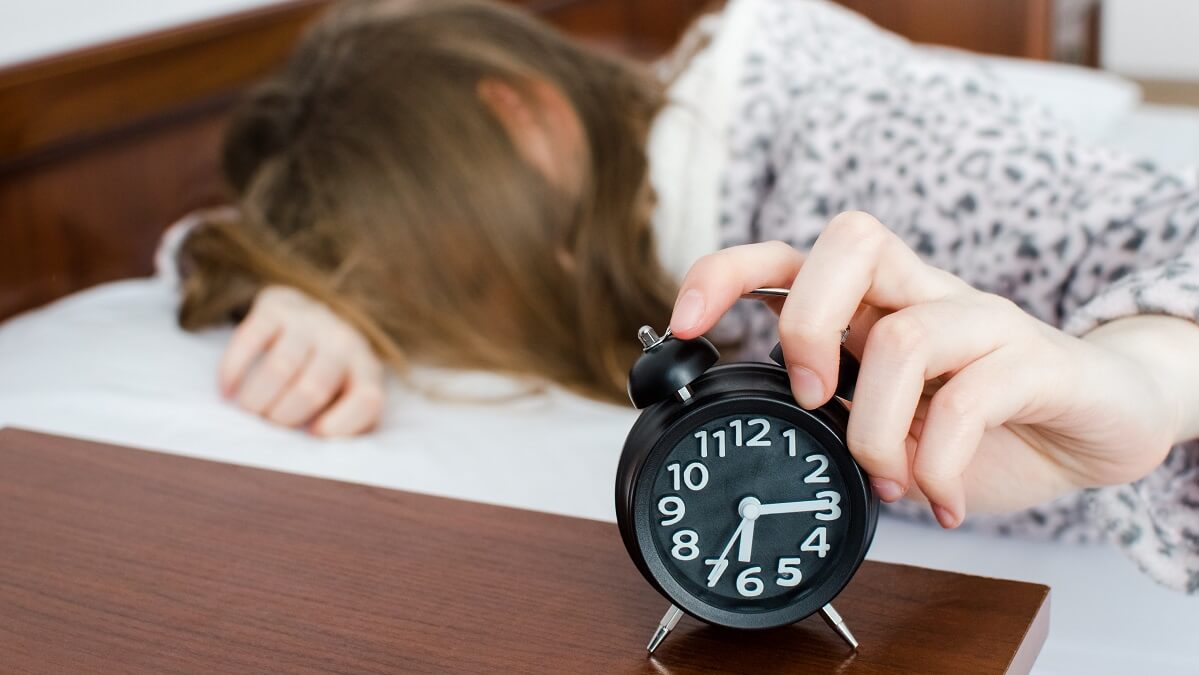An adult needs between seven-and-a-half to nine hours of sleep each night. If you’re consistently sleeping for longer than this and waking up tired, you may be oversleeping.
Idiopathic hypersomnia is a condition that refers to excessive daytime sleepiness without a known cause. Oversleeping may be caused by serious sleep disorders including hypersomnia, narcolepsy, restless leg syndrome and sleep apnoea.
Oversleeping has also been linked to other factors including low socioeconomic status, weight gain, depression, heart disease, diabetes and an increased risk of death. It may be accompanied by symptoms such as memory problems, anxiety and lack of energy.
For many people, oversleeping is not linked to a sleep disorder, but rather to prescribed medication or the over consumption of alcohol.
If you experience the following symptoms, you may be oversleeping.
You always feel tired
If you are getting the proper amount of sleep, but never seem to feel well rested, you may have idiopathic hypersomnia. Needing to set multiple alarms and taking a long time to wake up are other telltale signs.
You frequently get headaches
If you experience headaches throughout the day or when you – finally – wake up in the morning, you may be oversleeping.
Brain fog
When you’re finally awake, you struggle to focus and can’t concentrate. Your memory may seem a little hazy and your mind a little groggy.
You perk up at night
You consider yourself to be a bit of a night owl but can’t keep your eyes open during the day. This may be a symptom of circadian sleep delay, which makes staying up late easy but can make it harder to wake up in the mornings.
You experience mood swings
Toddlers cry when they become overtired, and it’s not all that different for adults – even though we’d like to pretend we’re above wailing and punching the floor. Both too much and too little sleep can cause mood swings and irritability.
You could fall asleep while reading this
You may be surprised to know that it’s not normal to feel like dozing off while readingor talking to a friend.
If you are curious about how your sleepiness compares to other people, consult the Epworth Sleepiness Scale. It also recommends when to seek medical attention.
What you can do about it
You may be sleeping the recommended number of hours each night, but you may not be getting enough quality sleep. Regulating your sleep schedule can help to improve the quality of your sleep, making you feel less tired throughout the day.
It may be helpful to start a sleep diary. Try to establish a regular bedtime and a regular waking time. Write down the times that you get to sleep and wake up, as this allows you to work out your average hours slept and notice any irregular sleeping patterns. Try to maintain this regular sleep schedule over weekends and on holidays as it will help you to maintain a healthy circadian rhythm.
Ensure that your sleeping environment is as dark and quiet as possible, so that your sleep is uninterrupted. Avoid looking at screens or blue light in the hours before you go to bed, and sleep with your phone and other technology in another room.
Mind Body Green recommends drinking less alcohol and reviewing any prescription medications that may cause sleepiness as a side-effect.
Finally, if you suspect that an underlying problem may be causing your tiredness, consult your doctor.
How often do you feel tired through the day? Do you suspect that your sleepiness may be caused by a sleep disorder? How regular is your sleep schedule?
Also read: Your sleep position affects your health
Disclaimer: This article contains general information about health issues and is not advice. For health advice, consult your medical practitioner.

